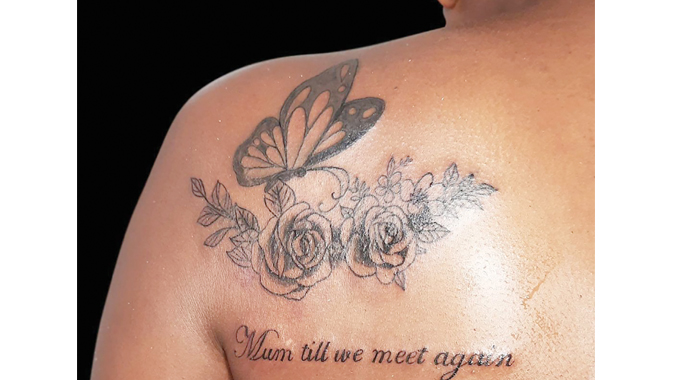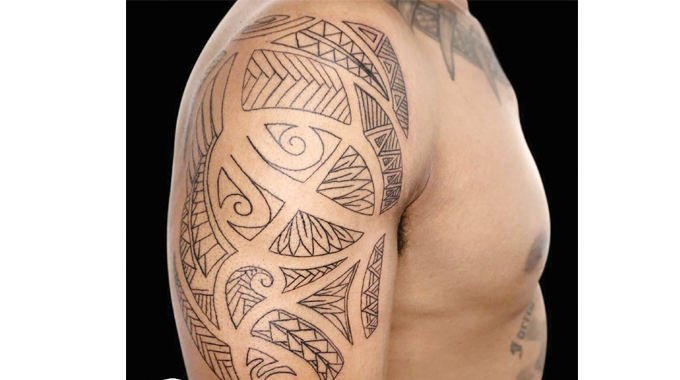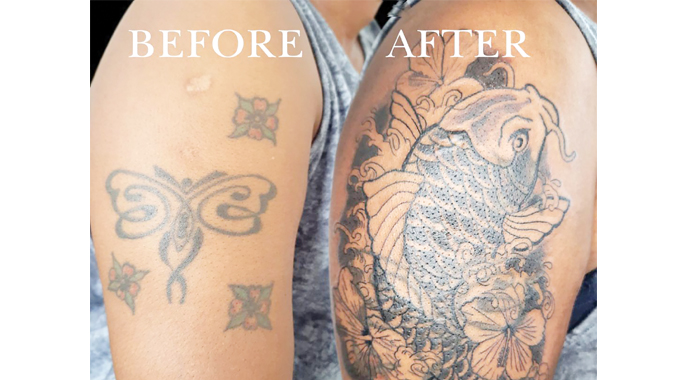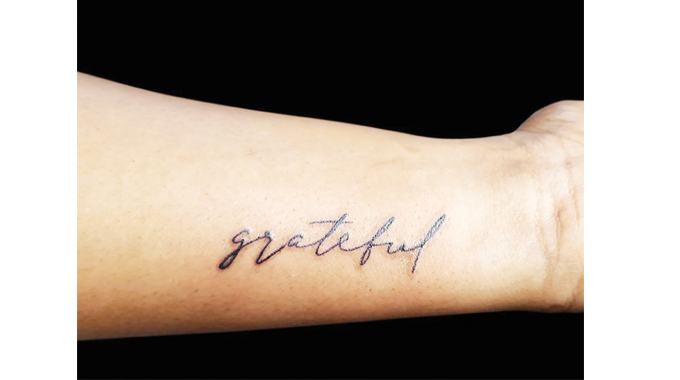Before you get a tattoo, think carefully about it!

Peter Matika, Senior Reporter
THE tattoo is no longer quite the symbol of rebellion and subculture it once was.
Many people consider tattoos to be ungodly and remarked as a sin to get one, yet it is rarely understood what they entail.
Considered by many as an art, it is a statement that many wear with their heads above the shoulder. Tattooing and tattoos are now considered one of the purest forms of art, untainted by the conventions of the modern art world, or by money.
If art’s purpose is to challenge viewers, make a statement, or alter one’s perceptions, then can a tattoo be considered art, too?
Like most intensely debated issues, the answer is subjective, and changes depending on who you are talking to.
According to a local tattoo artist, who preferred to go by the name Mr Ink, the answer is simple.
“If a person intends for their tattoos to be art, then they are,” said the tattoo artiste who is quite prominent among ink lovers.
He said the stigma surrounding tattoos was slowly fading.
“As the stigma surrounding tattoos fades, tattoo lovers are approaching their marks like fine art, collecting tattoos on their skin from a variety of artists that they follow, much in the same way that a collector would amass canvases and sculptures by the artists they love. Tattooing is an art that walks around in the world with someone for as long as they live.”
He added that the stigma against tattoos in the workplace was slowly fading in many parts of the world.

“This is a sure sign that the world is broadening acceptance of the 1 000-year-old art form,” said Mr Ink.
Mr Ink said tattoos are a unique type of art that requires a lot of work.
“As a tattoo artist, the role of the craftsman is interlaced with the role of the artist. The artist’s hand is going to create things differently every time because we are not machines.”
He went on to state that there were many issues to consider before getting tattoos.
“You could be the proud owner of a new tattoo in a matter of hours — but don’t let the ease of the process stop you from thinking carefully about permanent body art. Before you get a tattoo, make sure you know what’s involved and how to reduce the possible risks,” said Mr Ink.
Tattoos are permanent and will remain on your skin for as long as you live or are wealthy enough to get them removed by laser.
“A tattoo is a permanent mark or design made on your skin with pigments inserted through pricks into the skin’s top layer.
Typically, the tattoo artist uses a hand-held machine that acts much like a sewing machine, with one or more needles piercing the skin repeatedly. With every puncture, the needles insert tiny ink droplets,” said Mr Ink stating that “inking” is a process that is done without anaesthetics that causes a small amount of bleeding and slight to potentially significant pain.

He said tattoos breach the skin, which means that skin infections and other complications are possible.
“Before getting inked, you have to know if you have any skin-related allergies and so forth. Some may react to tattoos, mostly the ink or dye that is used. Tattoo dyes, especially red, yellow, and blue can cause allergic skin reactions, such as an itchy rash at the tattoo site.
“This can occur even years after you get the tattoo. Tattoos can also cause skin infections,” said Mr Ink.
He said sometimes, an area of inflammation can form around tattoo ink.
“Tattooing can also lead to keloids — raised areas caused by an overgrowth of scar tissue. If the equipment used to create your tattoo is contaminated with infected blood, you can contract various diseases such as hepatitis B and hepatitis C,” said Mr Ink.
He said medication or other treatment might be needed if one experiences an allergic reaction to the tattoo ink or develops an infection or other skin problem near a tattoo.
“Before you get a tattoo, think carefully about it. If you are unsure or worried that you might regret it, give it more time. Don’t allow yourself to be pressured into getting a tattoo, and don’t get a tattoo if you are under the influence of alcohol or drugs,” said Mr Ink, stating that many people gained consciousness filled with regret after getting tattooed.
“Choose the location of the tattoo carefully. Consider whether you want the option to hide your tattoo under your clothing. Also remember that weight gain, including pregnancy, might distort the tattoo or affect its appearance. It’s always wise to go for areas that have less fat,” suggested Mr Ink.
He said most tattoo artists do not consider hygiene as a requirement.

“To make sure your tattoo will be applied safely, make sure you go to a reputable tattoo parlour, salon, or home that has a highly skilled individual or individuals putting the ink. As I noted, hygiene is a prerequisite. Make sure the tattoo artist washes his or her hands and wears a fresh pair of protective gloves for each procedure.
“Make sure the tattoo artist removes the needle and tubes from sealed packages before your procedure begins. Any pigments, trays, or containers should be unused as well. Make sure the tattoo artist uses a heat sterilisation machine (autoclave) to sterilise all non-disposable equipment between customers,” said Mr Ink.
He said instruments and supplies that cannot be sterilised with an autoclave should be disinfected with disinfectant or bleach after each use.
“After getting inked, you have to know how to care for your tattoo. How you care for your new tattoo depends on the type and extent of work done. You always have to keep the tattooed skin clean. Use plain soap and water and a gentle touch. Pat, don’t rub the area dry. You always need to keep the tattoo moisturised,” said Mr Ink.
He added that a fresh tattoo needs a lot of care.
“Avoid sun exposure. Keep the tattooed area out of the sun for at least a few weeks. Stay out of pools and other bodies of water while your tattoo is healing. Choose clothing carefully. Don’t wear anything that might stick to the tattoo.”
Mr Ink said a tattoo can take up to two weeks to heal.
“Allow up to two weeks for healing. Don’t pick at any scabs, which increases the risk of infection and can damage the design and cause scarring. If you think your tattoo might be infected or you are concerned that your tattoo isn’t healing properly, contact your doctor.”











Comments